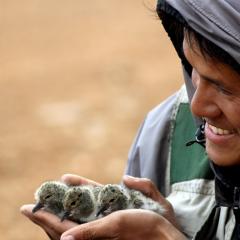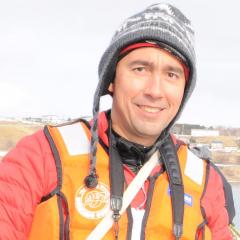Millions of migratory shorebirds visit Australia each year from their breeding grounds in Arctic and Boreal regions. But these amazing travellers are declining extremely rapidly, according to research done at UQ in collaboration with other research centres and community groups that monitor the birds. For example, the Far Eastern Curlew has declined by 80% in 30 years. UQ-led research has shown that shorebirds are declining mainly because their migration pathway takes them through the highly degraded Yellow Sea of East Asia, where they stop to feed and rest on migration. UQ researchers are also studying local issues, such as disturbance along Australia's crowded coastlines, and less-studied issues, such as hunting during migration/breeding and supratidal habitat availability, factors that may also be contributing to declines or preventing recovery. Underpinned by the significant body of research on this species group, the Australian Government recently listed eight species or subspecies of migratory shorebirds as nationally threatened, significantly adding to the protections for these declining species and influencing development decisions around the nation.
Because the migration pathway of shorebirds takes them through many jurisdictions outside of Australia, we are working collaboratively on many fronts to implement evidence-based conservation. Our research team is implementing both field ecology and policy and global governance research in Australia and in other countries throughout the flyway to inform flyway-scale conservation action. Locally we are working with the Queensland state government, the Burnett Mary Regional Group, councils in Moreton Bay and local community organisations including the Queensland Wader Study Group. Internationally, we contribute regularly to the East Asian-Australasian Flyway Partnership, a multi-lateral platform well-placed to use research findings to inform conservation at a flyway scale. For example, the partnership recently adopted a conservation action plans for the Far Eastern Curlew, which should assist to coordinate conservation action around the migratory flyway for this highly imperilled species.
Our work on migratory species is influencing national policy. In April 2016 the Australian Government launched a migratory shorebird conservation plan that begins to implement some of the research findings and conservation and management suggestions from our lab and other research groups. We have been regularly invited by the Commonwealth Government to brief them on these topics as they continue high level discussions with China, South Korea and other flyway countries on migratory species conservation.





